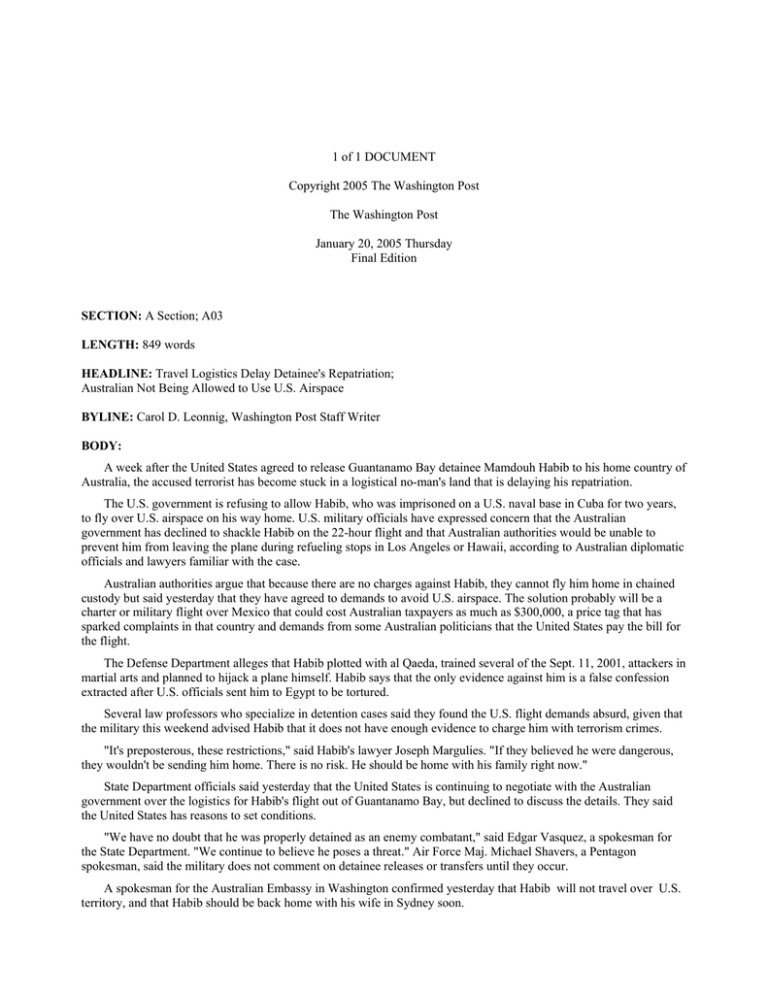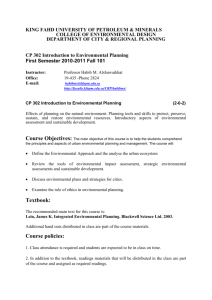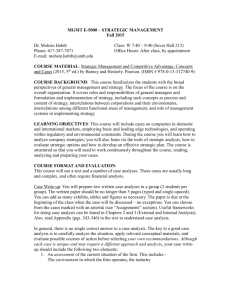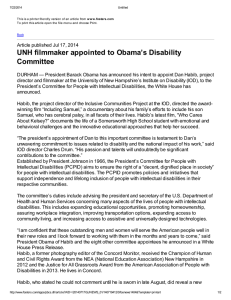1 of 1 DOCUMENT Copyright 2005 The Washington Post The Washington Post
advertisement

1 of 1 DOCUMENT Copyright 2005 The Washington Post The Washington Post January 20, 2005 Thursday Final Edition SECTION: A Section; A03 LENGTH: 849 words HEADLINE: Travel Logistics Delay Detainee's Repatriation; Australian Not Being Allowed to Use U.S. Airspace BYLINE: Carol D. Leonnig, Washington Post Staff Writer BODY: A week after the United States agreed to release Guantanamo Bay detainee Mamdouh Habib to his home country of Australia, the accused terrorist has become stuck in a logistical no-man's land that is delaying his repatriation. The U.S. government is refusing to allow Habib, who was imprisoned on a U.S. naval base in Cuba for two years, to fly over U.S. airspace on his way home. U.S. military officials have expressed concern that the Australian government has declined to shackle Habib on the 22-hour flight and that Australian authorities would be unable to prevent him from leaving the plane during refueling stops in Los Angeles or Hawaii, according to Australian diplomatic officials and lawyers familiar with the case. Australian authorities argue that because there are no charges against Habib, they cannot fly him home in chained custody but said yesterday that they have agreed to demands to avoid U.S. airspace. The solution probably will be a charter or military flight over Mexico that could cost Australian taxpayers as much as $300,000, a price tag that has sparked complaints in that country and demands from some Australian politicians that the United States pay the bill for the flight. The Defense Department alleges that Habib plotted with al Qaeda, trained several of the Sept. 11, 2001, attackers in martial arts and planned to hijack a plane himself. Habib says that the only evidence against him is a false confession extracted after U.S. officials sent him to Egypt to be tortured. Several law professors who specialize in detention cases said they found the U.S. flight demands absurd, given that the military this weekend advised Habib that it does not have enough evidence to charge him with terrorism crimes. "It's preposterous, these restrictions," said Habib's lawyer Joseph Margulies. "If they believed he were dangerous, they wouldn't be sending him home. There is no risk. He should be home with his family right now." State Department officials said yesterday that the United States is continuing to negotiate with the Australian government over the logistics for Habib's flight out of Guantanamo Bay, but declined to discuss the details. They said the United States has reasons to set conditions. "We have no doubt that he was properly detained as an enemy combatant," said Edgar Vasquez, a spokesman for the State Department. "We continue to believe he poses a threat." Air Force Maj. Michael Shavers, a Pentagon spokesman, said the military does not comment on detainee releases or transfers until they occur. A spokesman for the Australian Embassy in Washington confirmed yesterday that Habib will not travel over U.S. territory, and that Habib should be back home with his wife in Sydney soon. Page 2 The Washington Post January 20, 2005 Thursday "I don't see that issue as being insurmountable," spokesman Matt Francis said of the flight logistics. "We're looking at what can be done. It should be a matter of weeks, not months." The dispute is the latest chapter in Habib's journey through the U.S. detention system for suspected al Qaeda operatives. Habib made worldwide news with his account of being sent to Egypt by U.S. authorities and tortured there for six months. The U.S. government announced its plan to release Habib a week after his descriptions of torture were declassified and released in a federal court case in Washington. Habib told his lawyer that he was scooped up by U.S. agents in Pakistan in October 2001, and that he was beaten, interrogated and loaded on a plane bound for Egypt by men and women with American accents. While imprisoned there, he said, he was forced to stand on an electrified metal drum and was threatened with assault by dogs. Australian Attorney General Philip Ruddock said in a statement that as part of its agreement with the Americans to release Habib, the Australian government would use all means necessary to ensure that he does not engage in future terrorist activities. Australian Senator Kerry Nettle told the Australian media that her government should make the United States pay for Habib's repatriation. "Mr. Habib has not been charged with any offense but has been illegally detained by the U.S. for over two years," she said. "The least the U.S. authorities can do is pay for his speedy return home to Australia." Eric Freedman, a Hofstra University law professor and expert in constitutional law, said the U.S. government is engaging in "elaborate political theater" by alleging that it needs to protect U.S. soil from Habib. He said the motive may be to distract the public from allegations that the government allowed him to be tortured and then imprisoned for two years without sufficient evidence to bring charges. "They are releasing him for the very good reason that not a single shred of evidence supports any finding of wrongdoing on his part -- other than the confession he signed to avoid being killed under torture," Freedman said. "He would just as easily have signed a confession saying he assassinated Abraham Lincoln under those circumstances, and it would be just as unreliable." Researcher Julie Tate contributed to this report. LOAD-DATE: January 20, 2005



